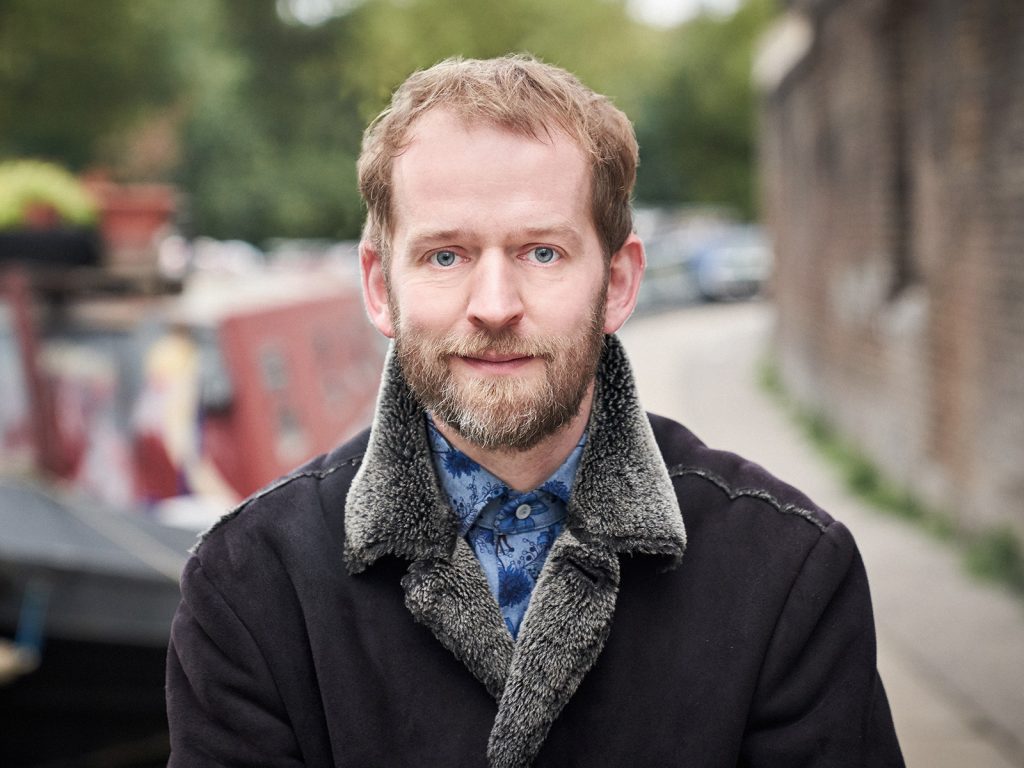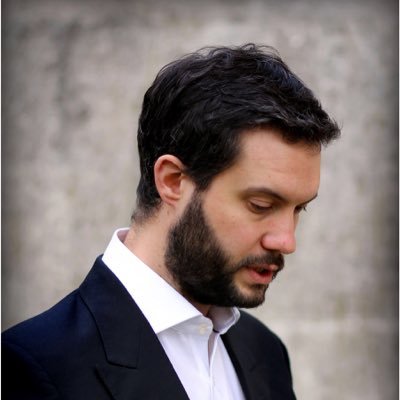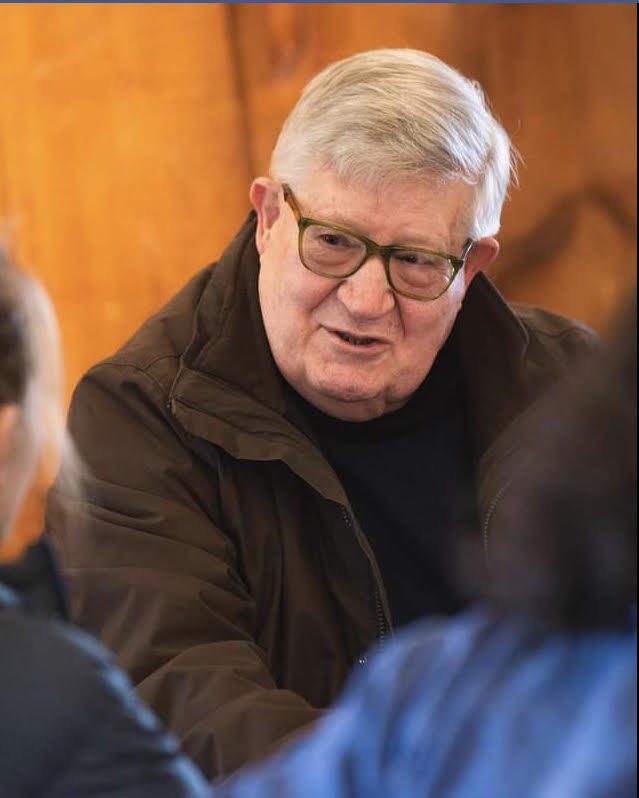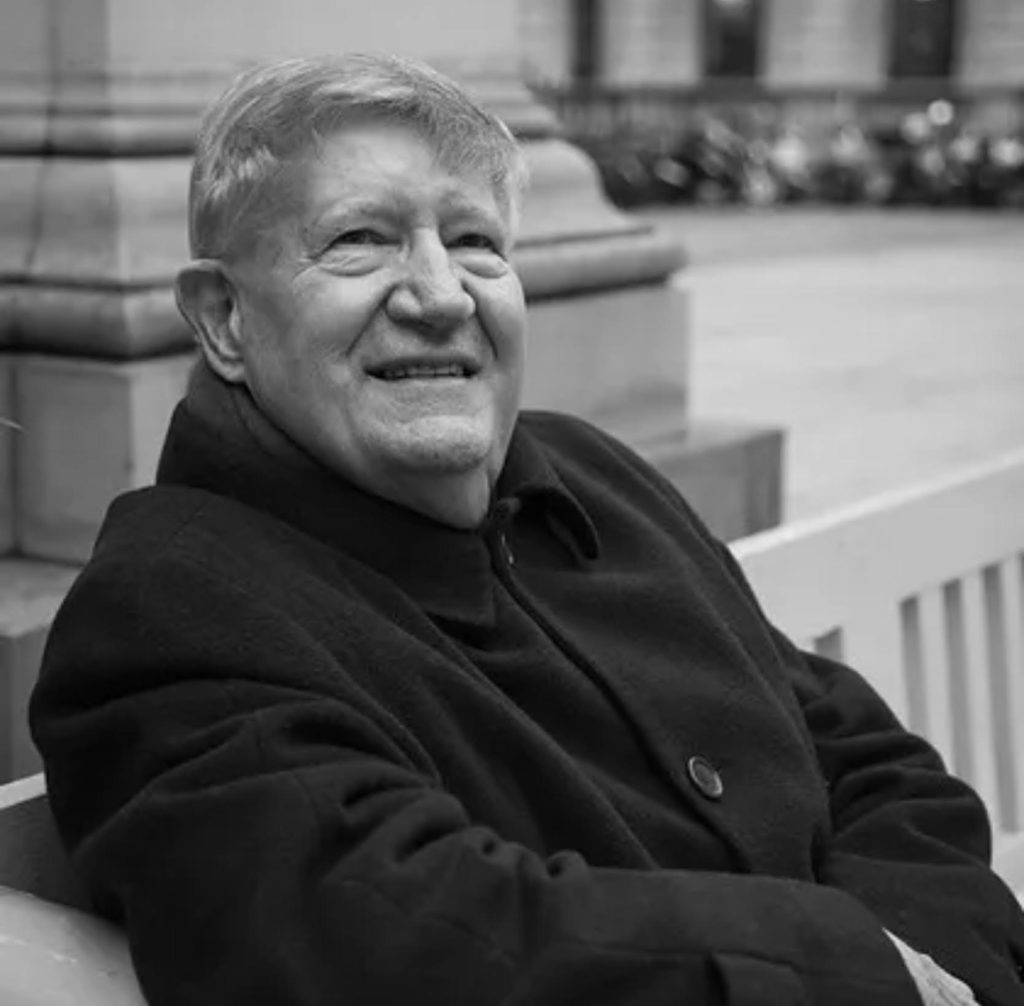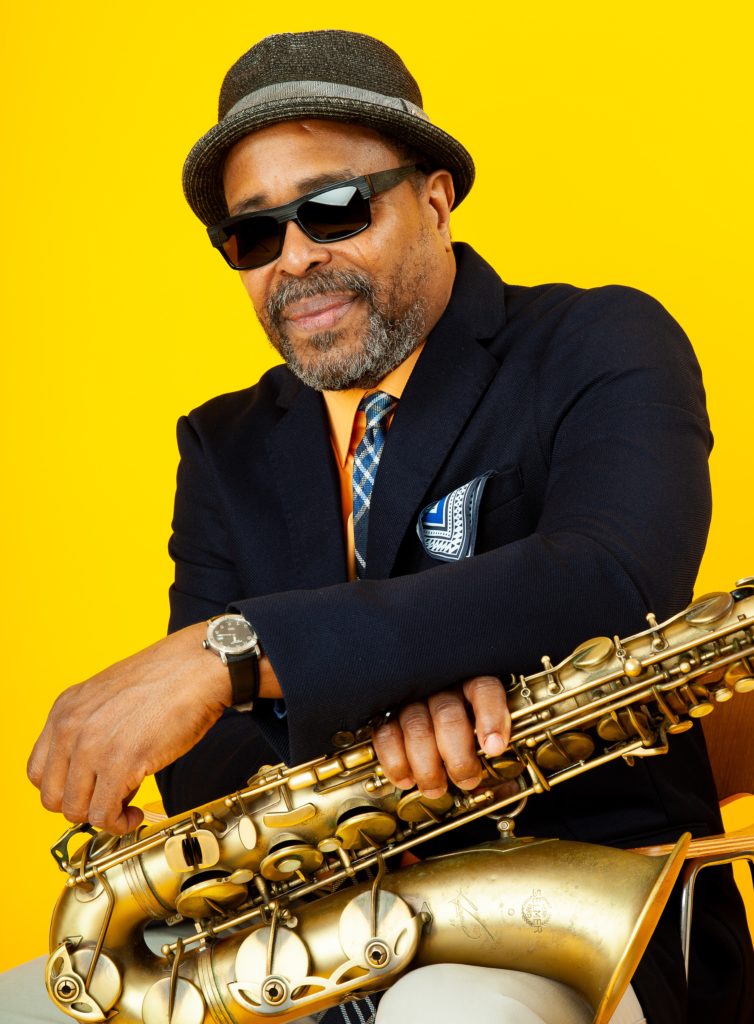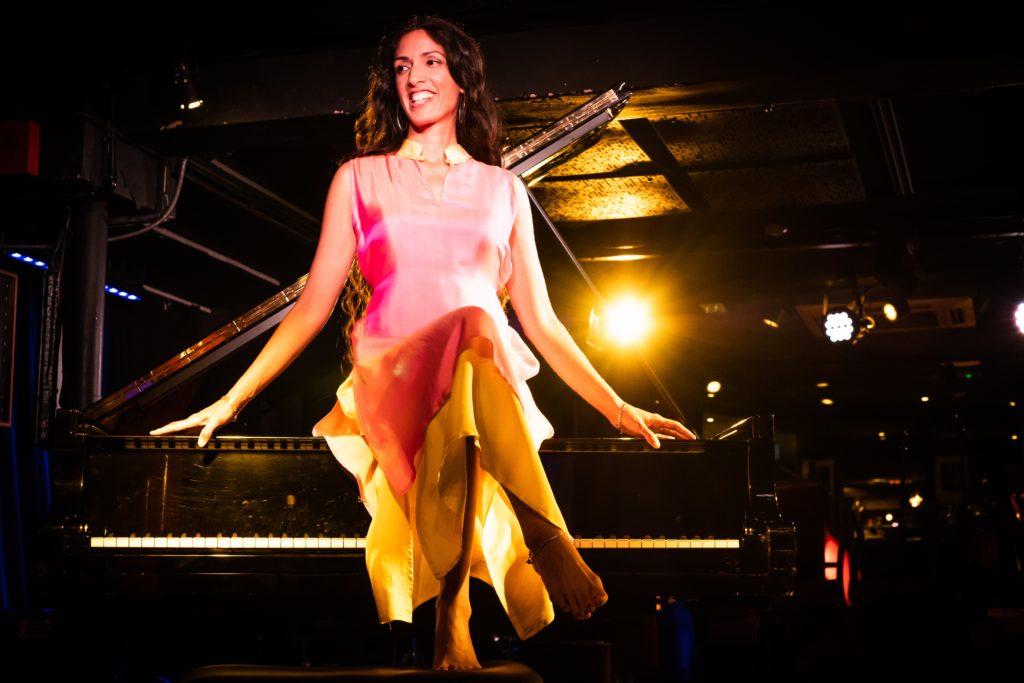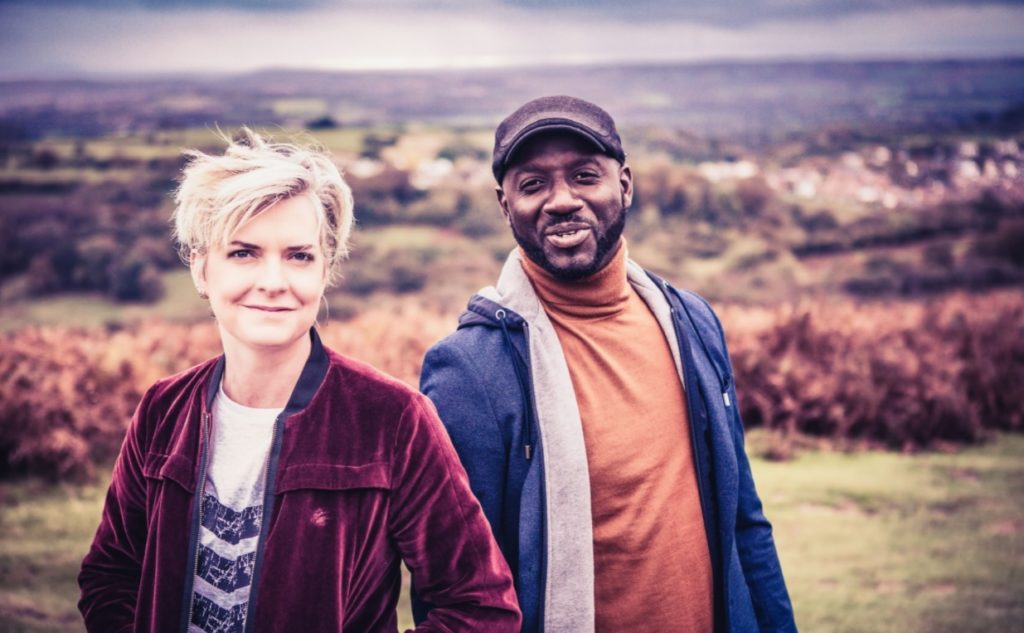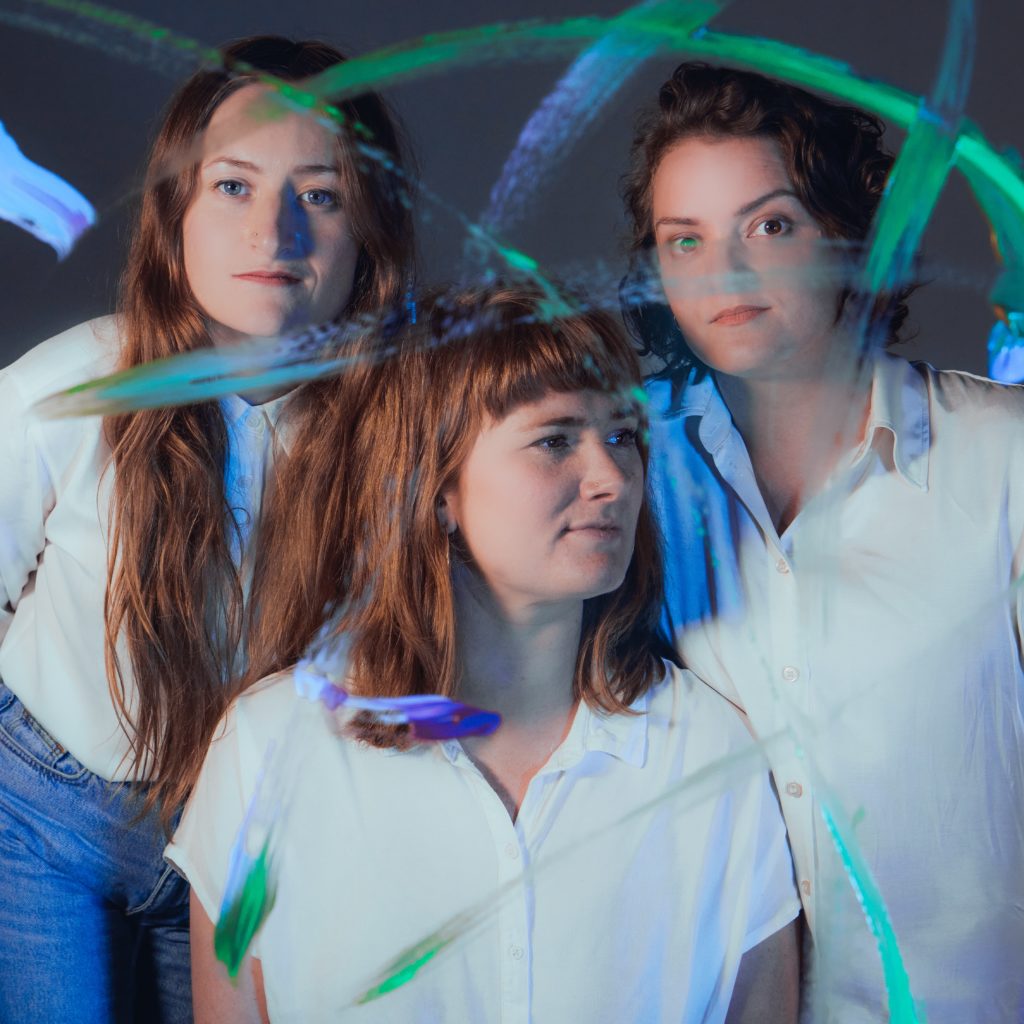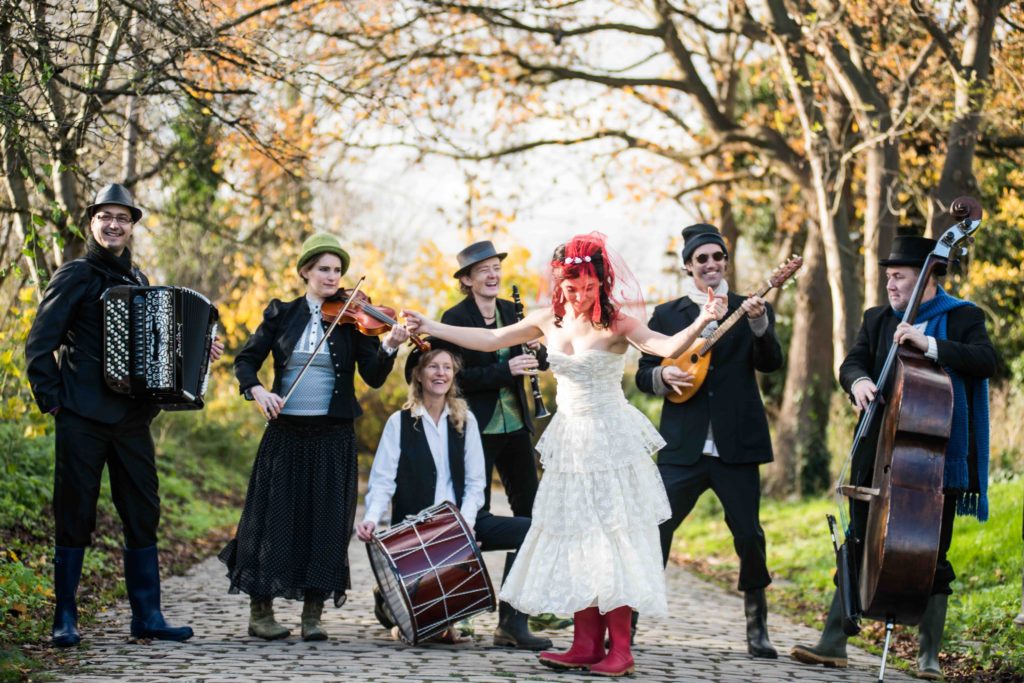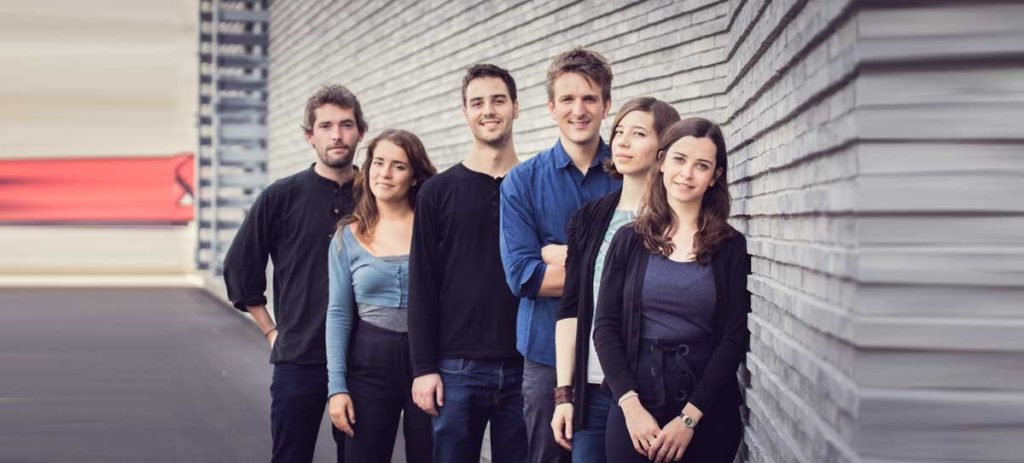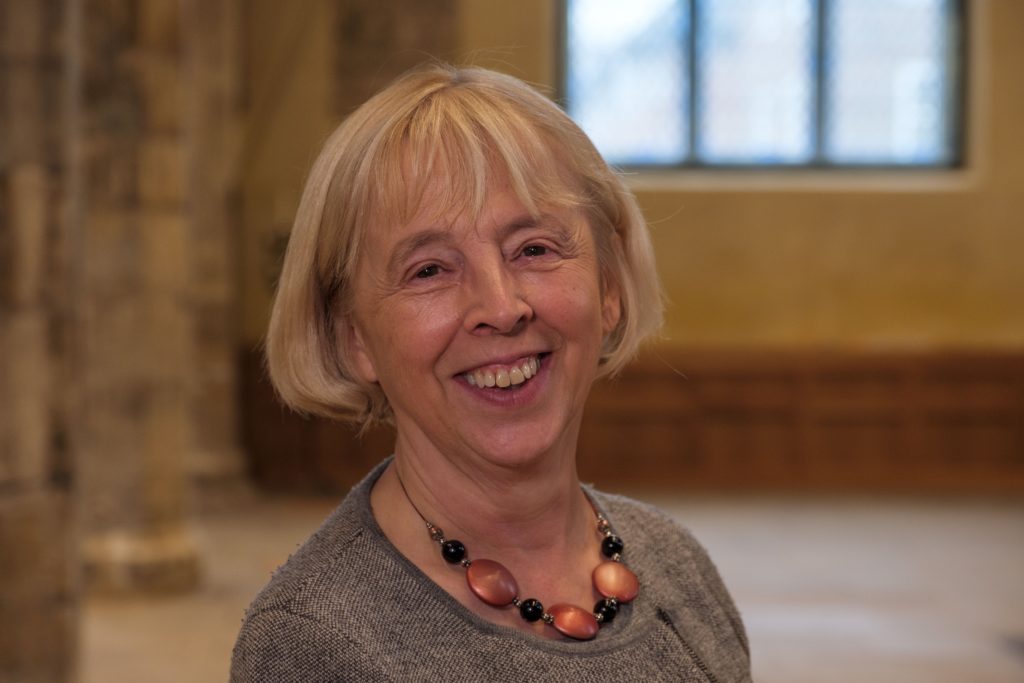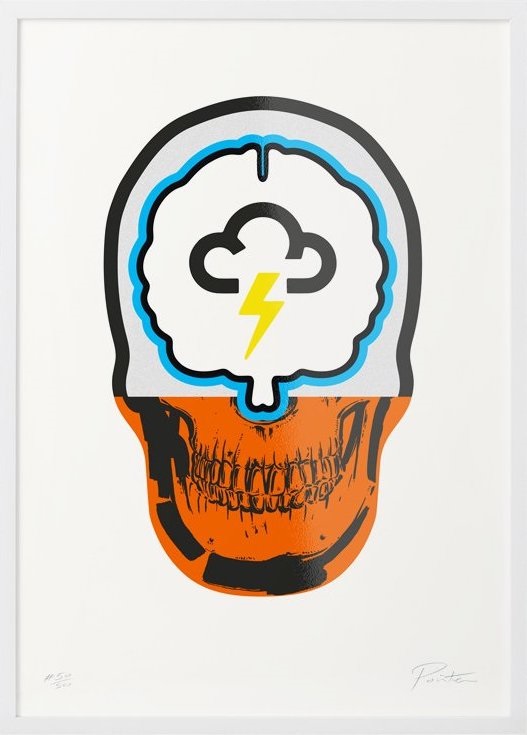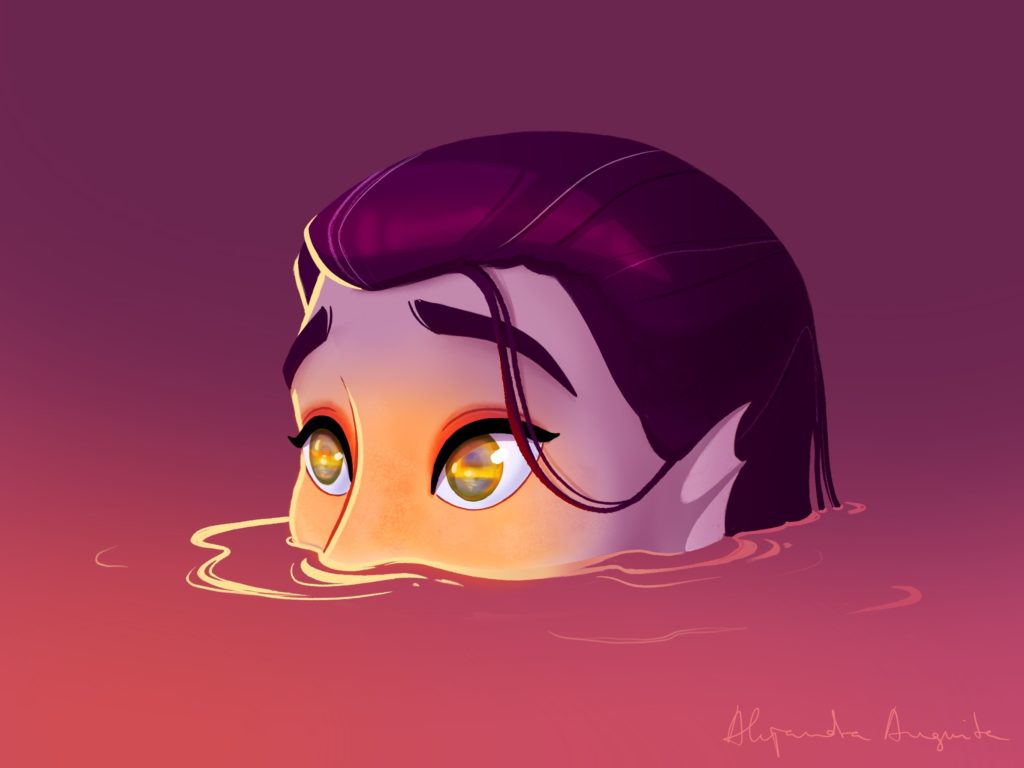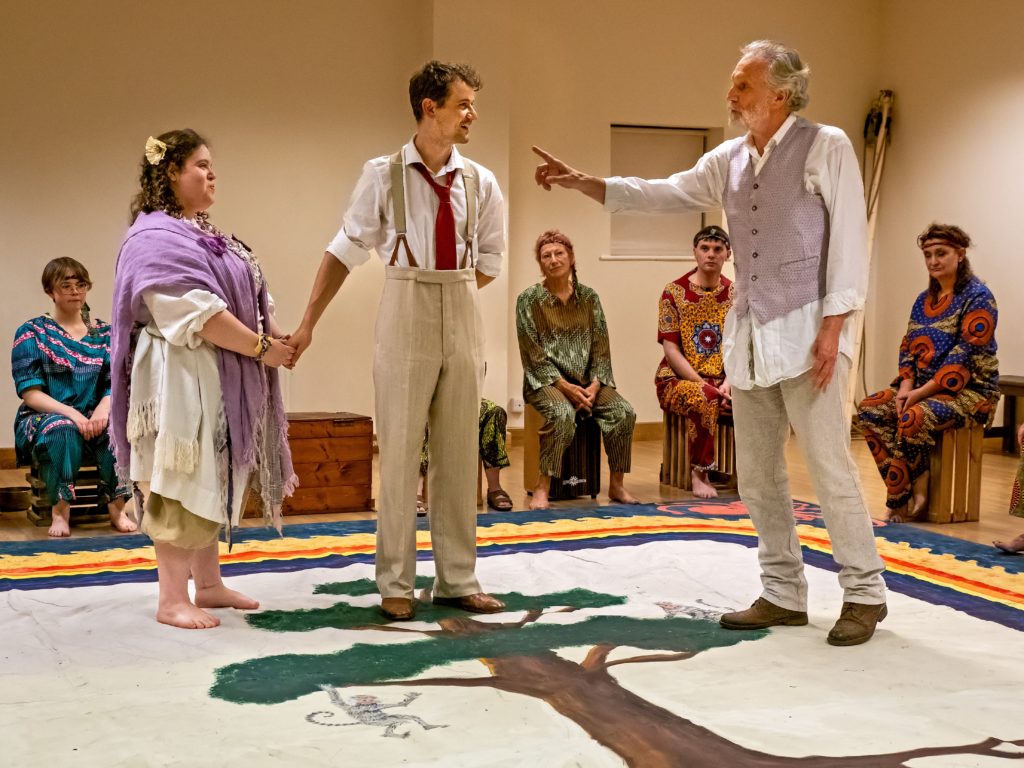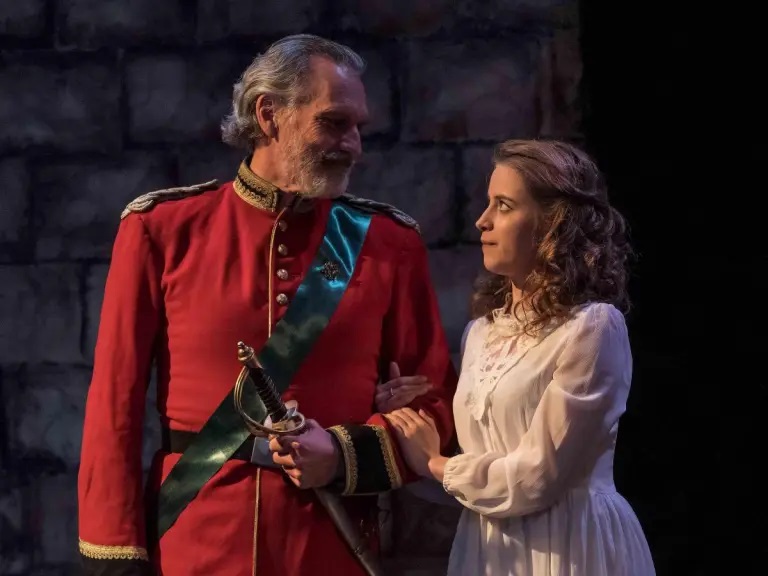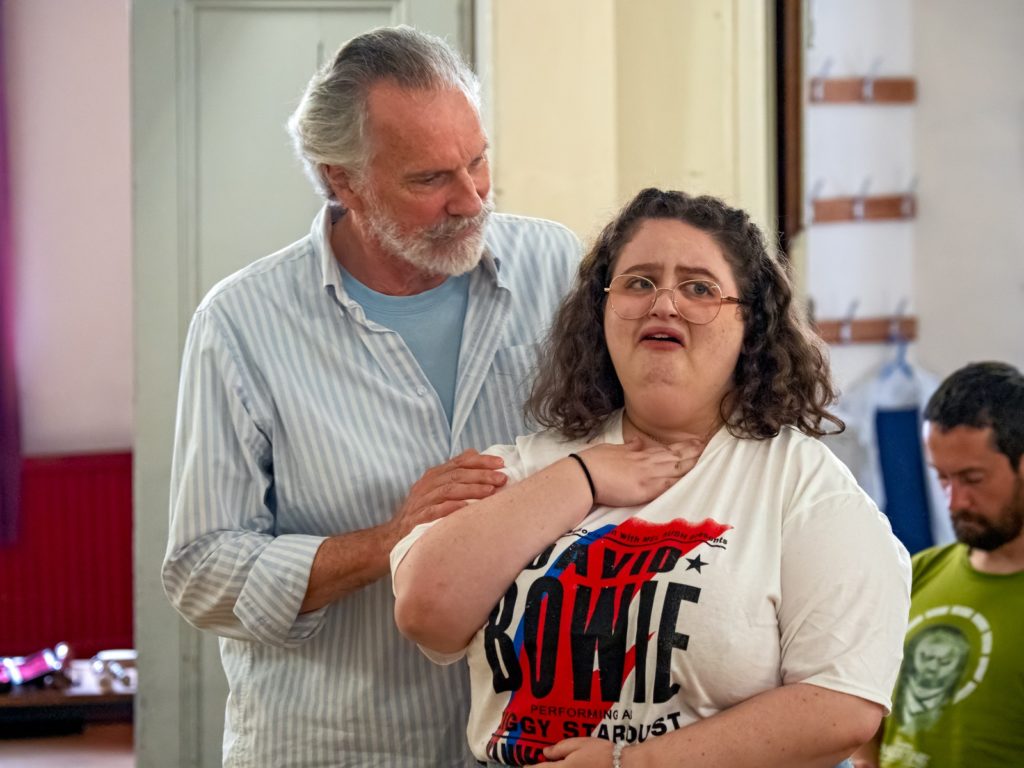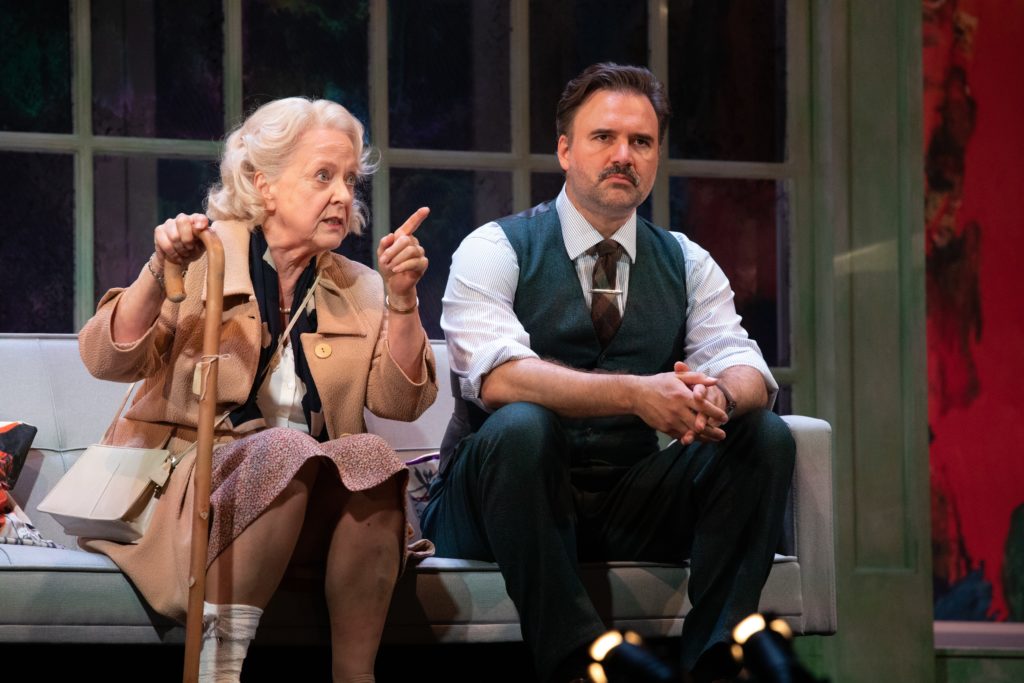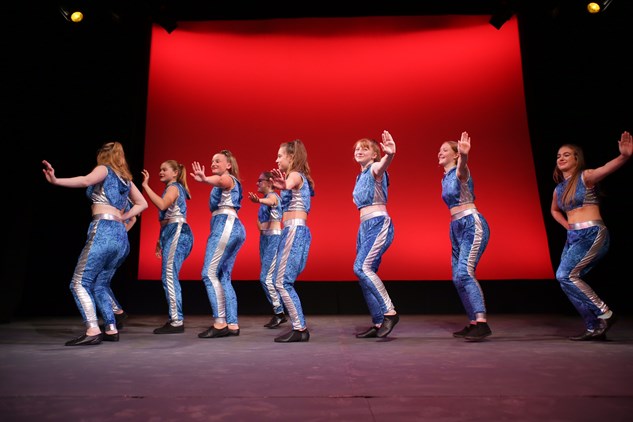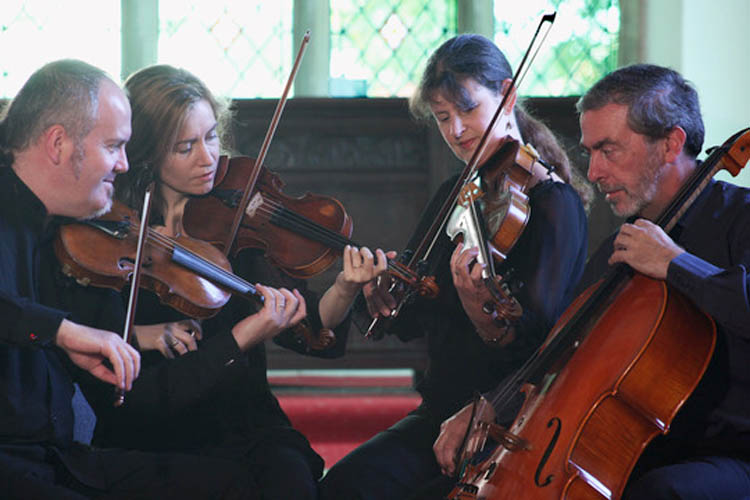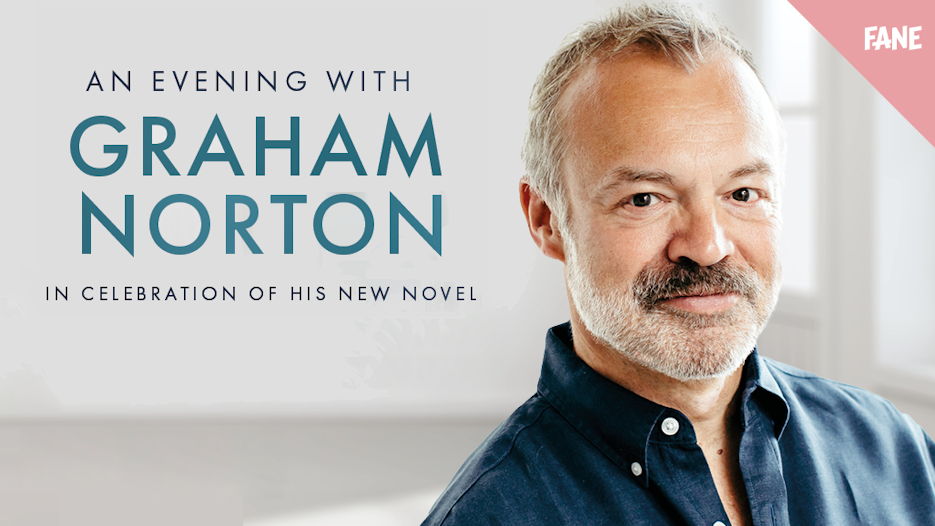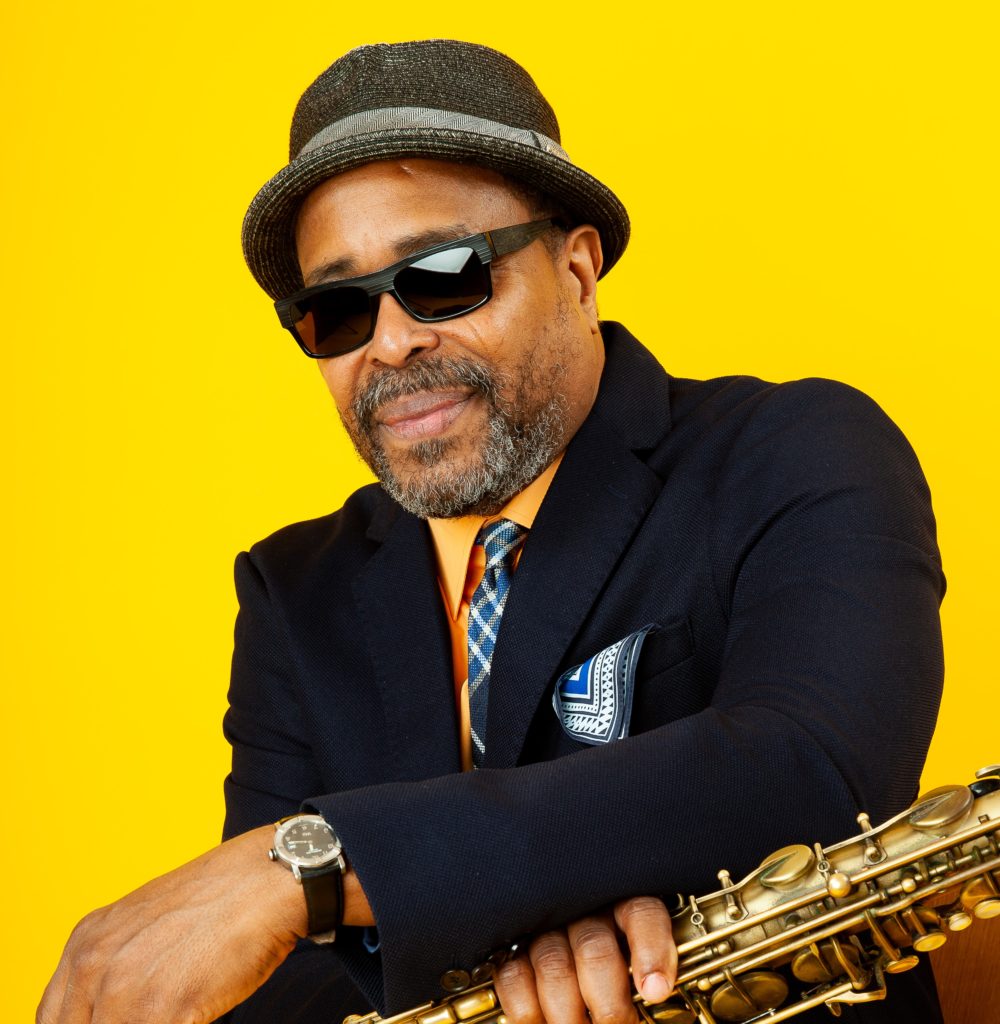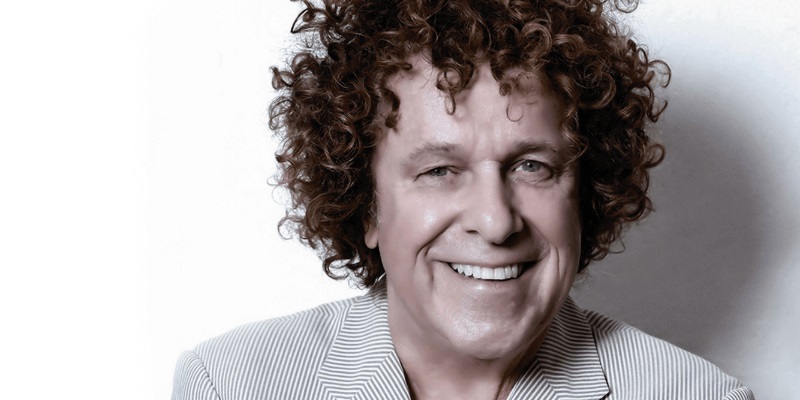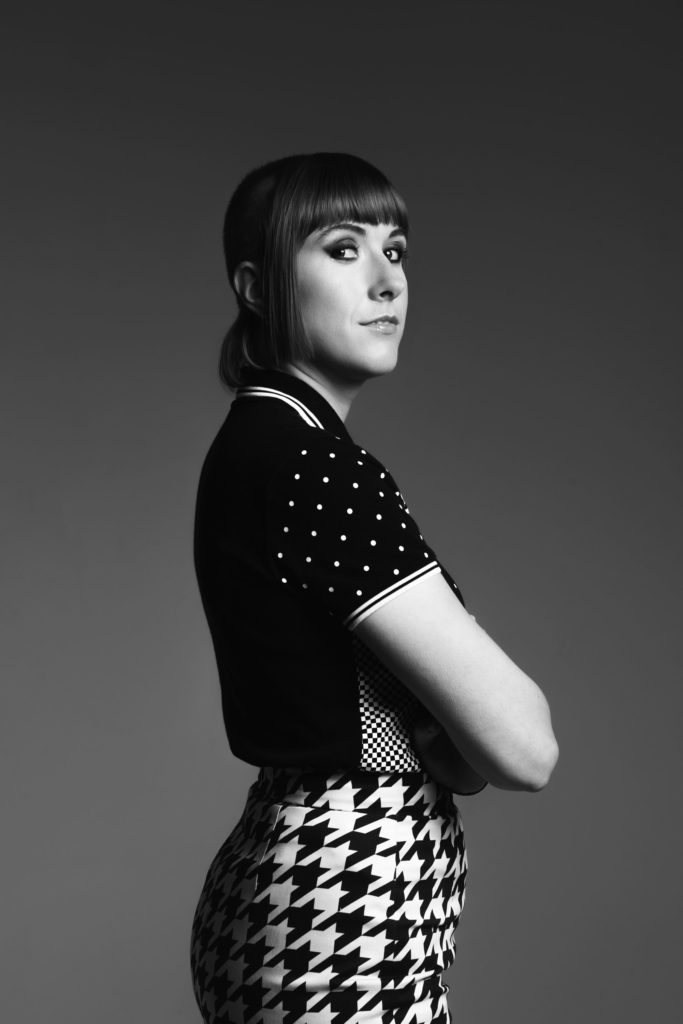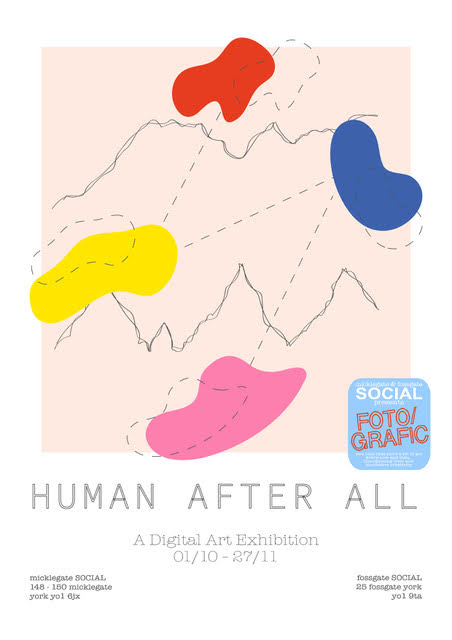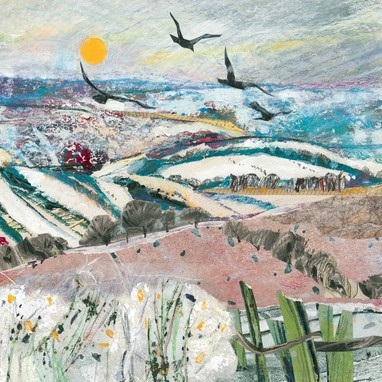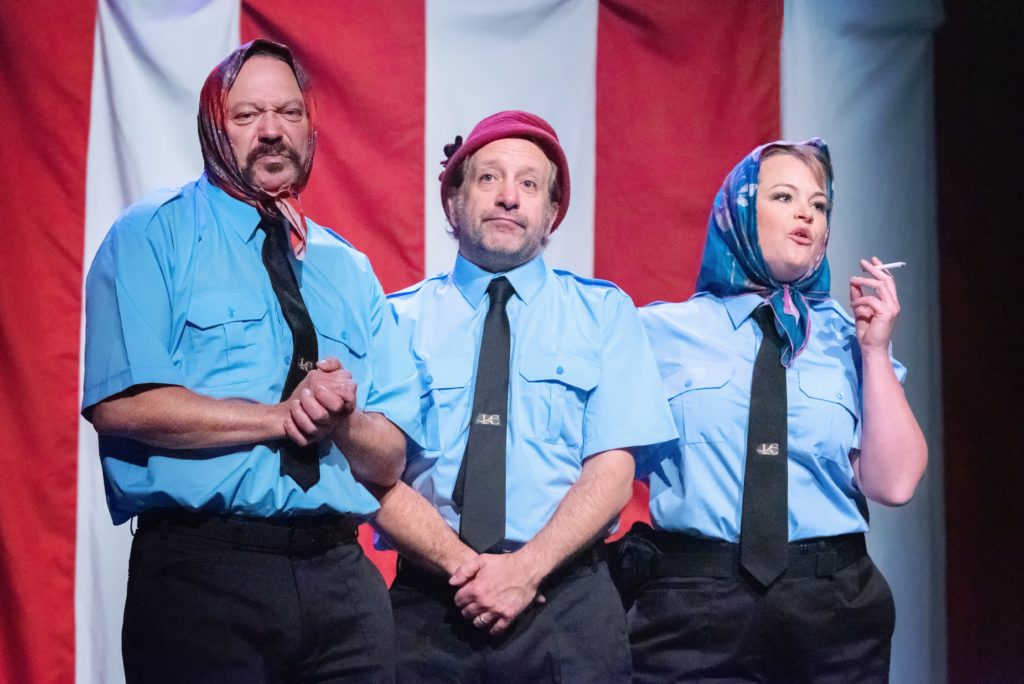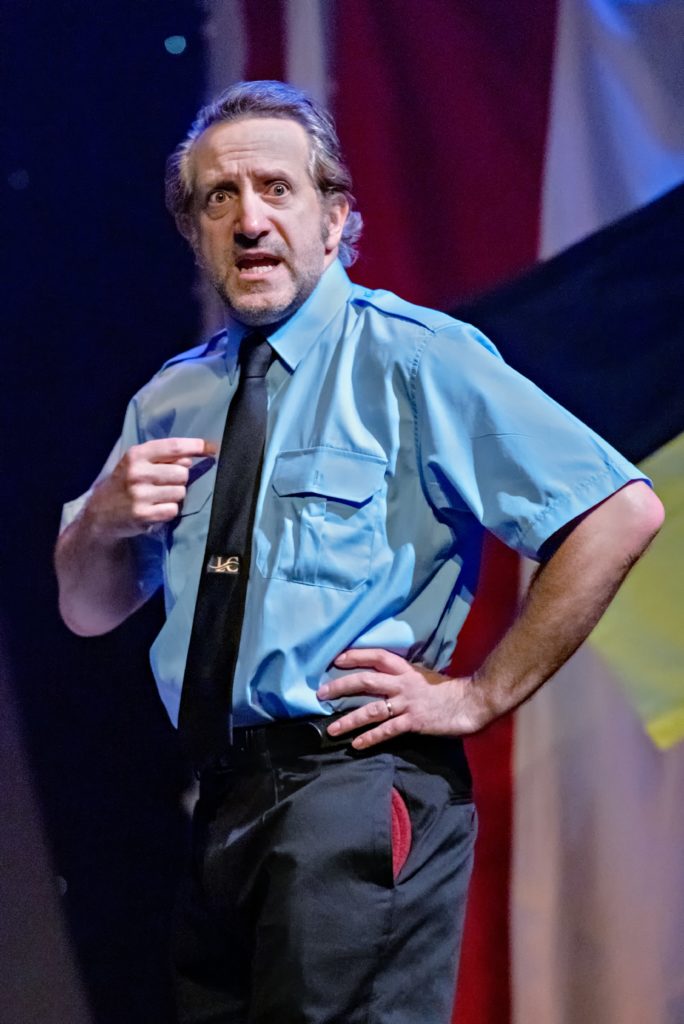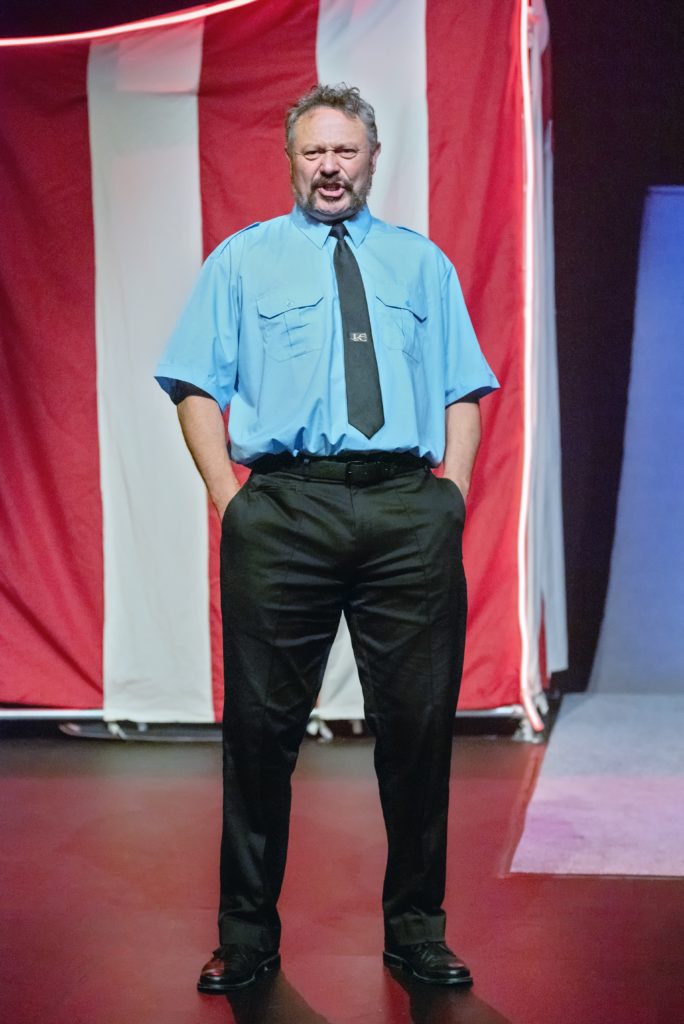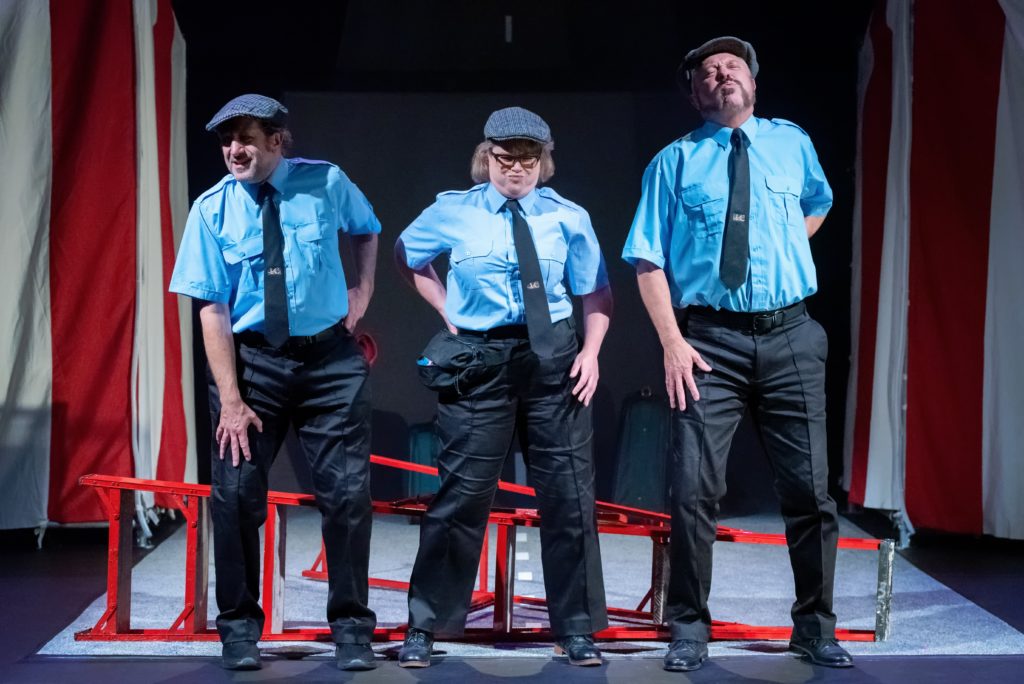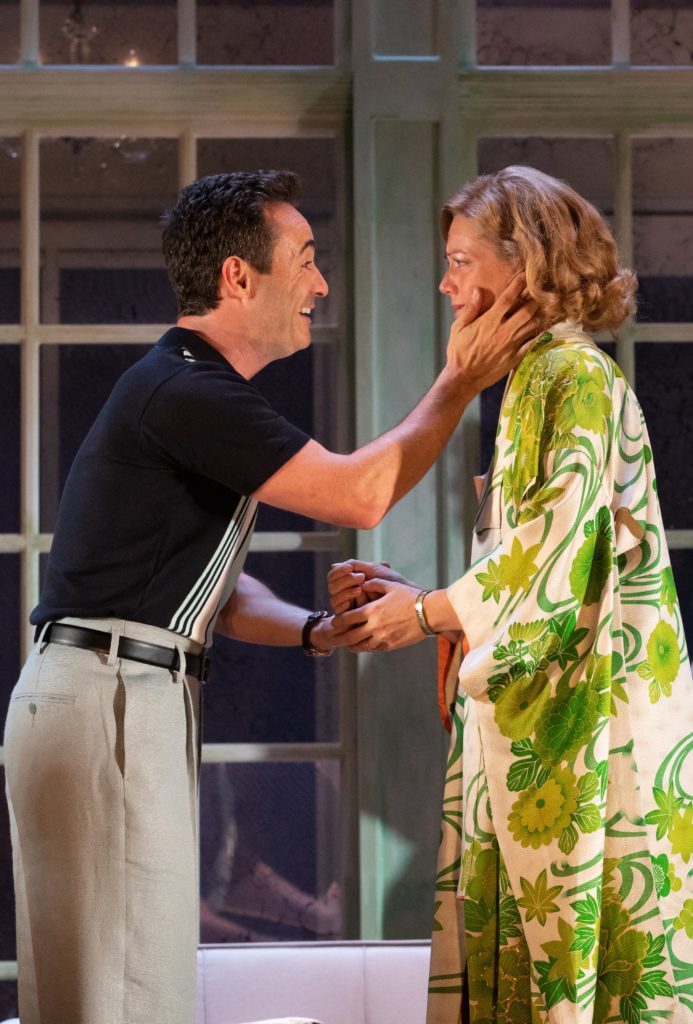
2017 Strictly champion Joe McFadden is appearing in his first Agatha Christie mystery, The Mirror Crack’d, on tour at York Theatre Royal all this week in the role of Jason Rudd.
Joining Glasgow-born Joe, 46, in Rachel Wagstaff’s stage adaptation of Christie’s 1962 psychological thriller will be Susie Blake’s Miss Marple and Sophie Ward’s Hollywood star Marina Gregg for a story of revenge and the dark secrets that we all hide, presented by the Original Theatre Company.
In the sleepy village of St Mary Mead, a new housing estate is making villagers curious and fearful. Even stranger, a rich American film star [Gregg] has bought the Manor House. Cue a vicious murder; cue Jane Marple defying a sprained ankle to unravel a web of lies, tragedy and danger.
Here Joe answers questions, but not those posed by Miss Marple.
Who is Jason Rudd?
“He’s a film director who put his career on the back burner because his wife, Hollywood star Marina Gregg, is going through a hard time. Now he’s going to make a film about Henry Vlll and his wives with Marina as Catherine Aragon.
“He manages to tempt her back with a script that he’s been working on for quite a long time. You’re suspicious of his motives. There are so many people circling around Marina, this Hollywood star from a bygone era and you ask yourself: why are they so interested in her? What are they getting out of it?”
Cast an eye over your CV…theatre, TV, Strictly…
“I feel very lucky that I get to do musicals and to do plays – and to do the odd bit of telly now and again. It’s really an actor’s dream in that I’m not stuck doing the one thing. The usual thing is that you either do plays or you do musicals or you do TV, and it becomes hard to break into the others. I feel very fortunate I get to do all of them.”
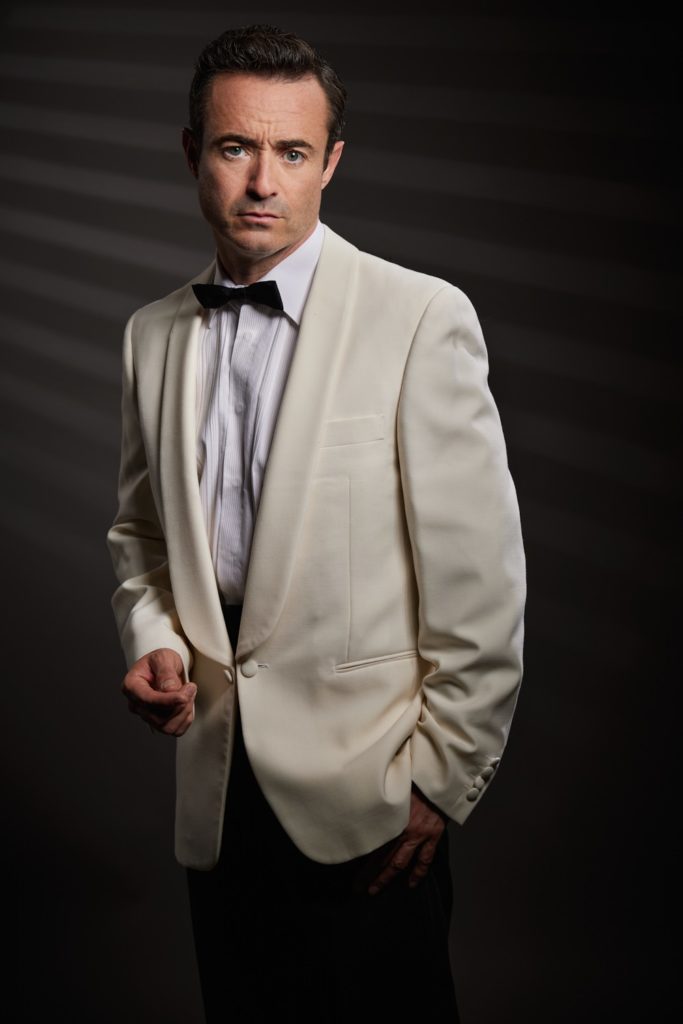
What have been your favourite roles?
“I couldn’t pick a favourite, honestly. It’s brilliant doing a play because you get a lot of time to sit down, as we have during The Mirror Crack’d rehearsals, and talk about the story. Working on something like Agatha Christie, it’s absolutely necessary because it’s so textured, so layered and there’s so much in there. On the face of it, it seems a simple whodunit but they’re all such complex characters. Nobody is really what they first appear to be.”
What’s the enduring appeal of Agatha Christie stories?
“They’re so rich, there’s so much in there and it really keeps you guessing. It’s not so much a whodunnit as a social commentary. The Mirror Crack’d is, as I’ve discovered, about mental health. At the time it was written, Agatha Christie was very much ahead of the curve.
“It’s a real examination of this movie star, Marina, and how, when you get to a certain age, you’re not in the running for the parts and you’re cast aside. It’s about the tragedy and unfairness of that. My character adores Marina and will do anything to protect her.
“We discover he’s been there for her in the past but you’re not sure what his motives are and, as is the way with Christie, discover he’s not all he seems to be by the end of the evening. So, it’s really great charting how much you show to an audience and who the red herrings are. Quite exhausting mentally”.
Have you gone back to the book, the TV versions or the film?
“I haven’t really read the book because some details have changed. Rachel Wagstaff has done a wonderful adaptation. It’s kind of confusing for me because I’ve watched the Julia McKenzie TV version and the Rock Hudson/Elizabeth Taylor film version and they’re all slightly different.
“What you do get from them is a feel for the period, the style and the characters. It’s difficult when you’re so familiar with the other source material because you’re torn between what you’re doing and what they’re doing.
“I feel like I don’t need to read the book or watch the films again. Not at the moment. Perhaps when we’re all finished I will.”
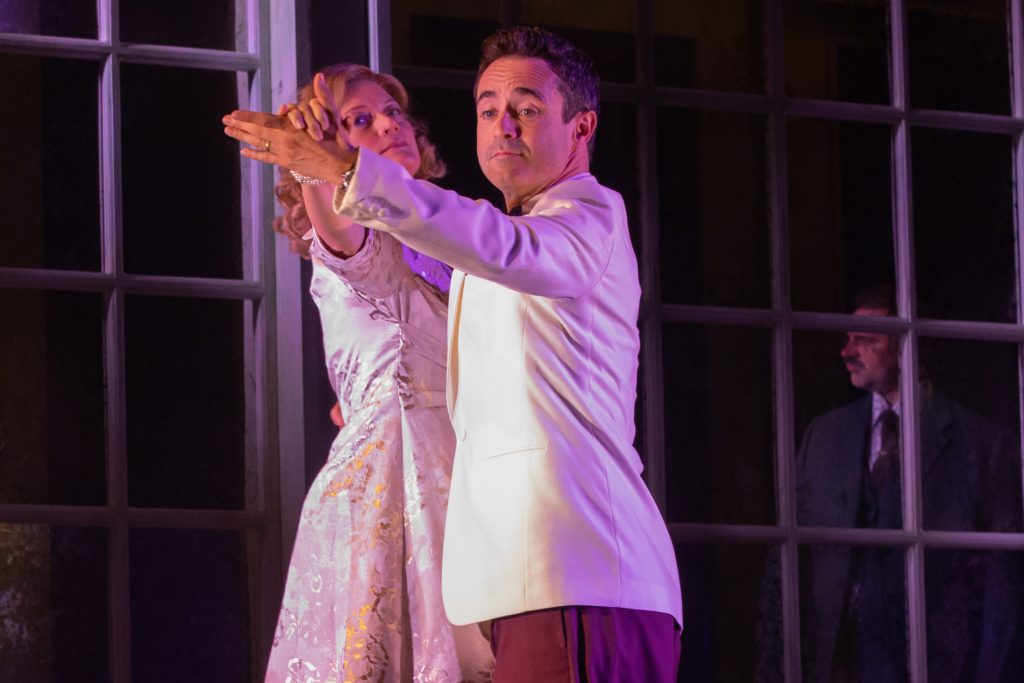
You are appearing in your first Agatha Christie thriller…
“Absolutely my first. My mother was a massive mystery fan. She loved a sleuth, Murder She Wrote, Poirot, all the detective shows, so I was brought up watching these films and TV shows. I do have a real fondness for them because they get you involved.
“You’re not passive when watching, you’re actually trying to work out whodunit. And while you’re working it out, you’re being entertained and getting a real insight into these human beings and their particular circumstances.”
The Mirror Crack’d brings together three regulars from ITV’s Yorkshire series Heartbeat: you, Sophie Ward and director Philip Franks. Plenty of conversation points, no doubt?
“We’re having a great time reminiscing and comparing experiences. I’ve done a number of long-running series and there’s something to be said for knowing the other actors and knowing the crew. It’s nice with a job like Heartbeat or Holby City, where you have a shorthand with people and a relationship with people. Those were particularly lovely jobs to do.
“I was happy to do them for as long as I did: two years of doing Heartbeat and five years in Holby. I’m sure every job is not as happy as those but I was very happy to do them for so long.”
What made you sign up for Strictly Come Dancing in 2017?
“I did agonise over the decision to do it because back in the day, 20 years ago, actors didn’t really do reality TV shows. It was a new thing. I thought long and hard about it and took advice from various people, friends in the industry, but ultimately my reason for doing it was I wanted to learn how to dance. I wanted to have this world champion teach me to dance. That opportunity only comes along once in a lifetime. I felt it would be silly not to grab it with both hands.”
It could not have worked out better: you won!
“I’m so glad I did it, not because I won but because it was such a brilliant experience. It was about saying yes to things and not being afraid of the unknown. As human beings we like the familiar, the same thing, and that’s a dangerous place for an artist to be because you want to challenge yourself and challenge people’s perceptions of you. Strictly was good for that.”
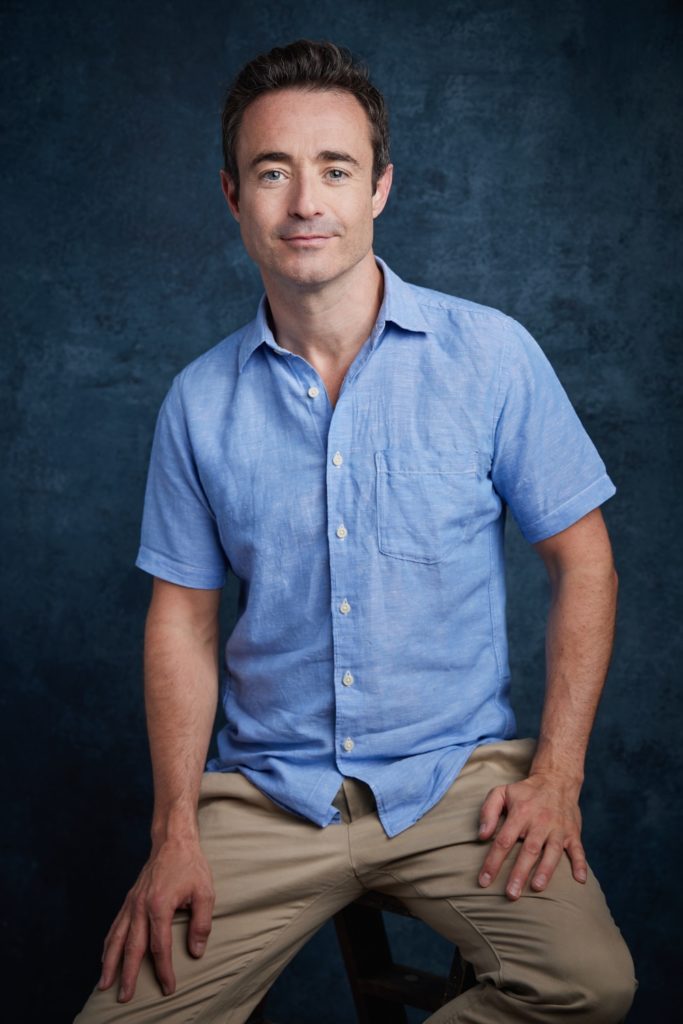
What was the hardest part of doing Strictly?
“Being myself on screen, which I hadn’t really done before. The most daunting thing was all the speaking and the live television but even that stuff ended up being massively enjoyable. Talking to Zoe Ball on It Takes Two became one of my favourite parts of the week because she made it so lovely. The fans are so appreciative and so warm that you feel the love everyone has for that show, something I perhaps wasn’t aware of going into it.”
What’s your advice to celebrities taking part in the new series of Strictly?
“Just to enjoy every moment, because you never know when it’s going to end, and get as much sleep as you possibly can because the tiredness is like nothing you will have experienced in your life. Just enjoy it because it will be over in a flash. It goes so quickly. Don’t take it too seriously, throw yourself into it and do exactly as your partner tells you.”
Will there be any dancing in The Mirror Crack’d?
“We do a bit of a waltz. I’m trying to dredge up from the corner of my mind how to do it.”
How do you feel about touring?
“I toured with Priscilla Queen Of The Desert for seven months and toured with two different Ghost Stories before that. I love touring. As an actor, you either love it or hate it. I try to get out to see places and not stay in my digs all the time.
“The great thing for Priscilla is that I didn’t drink for the whole time I did the show, which meant I got up in the morning, went to the beach, did the museums. I love how we get to go to these places that you never would at any other time.”
Joe McFadden fact file
Television credits include: Raffaello Di Lucca in Holby City from 2014 to 2020; Alistair in Casualty in 2009; PC Joe Mason in Heartbeat, 2007 to 2009; Jack Marshland in Cranford; Dallas in Sex, Chips & Rock’n’roll; Prentice McHoan in The Crow Road and Gary McDonald in The High Road.
Theatre includes: Priscilla Queen Of The Desert The Musical; Torch Song Trilogy (Menier Chocolate Factory); She Loves Me (Chichester Festival Theatre); Rainbow Kiss (Royal Court Theatre); How To Succeed In Business Without Really Trying (Chichester Festival Theatre); Aladdin (Old Vic Theatre) and Rent (Shaftesbury Theatre, London).
Joe won BBC One’s Strictly Come Dancing glitter ball with partner Katya Jones in 2017.
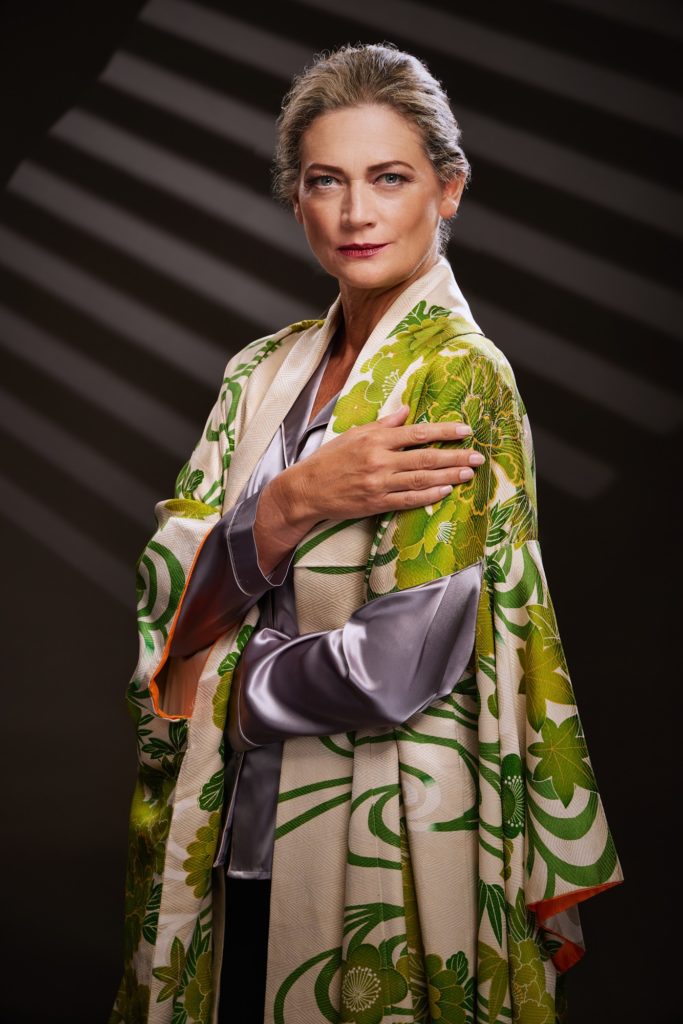
Questions for Sophie Ward, an actor playing an actor in The Mirror Crack’d
SOPHIE Ward returns to the York stage this week for the first time since playing the lead role of Eunice in the Classic Thriller Theatre Company’s staging of Ruth Rendell’s tale of murder, A Judgement In Stone, at the Grand Opera House in October 2017.
In the Original Theatre Company touring production of The Mirror Crack’d at York Theatre Royal, Sophie, 57, is cast as Hollywood star Marina Gregg.
Is The Mirror Crack’d your first experience of performing an Agatha Christie story?
“No, I did a television version of A Caribbean Mystery with Joan Hickson as Miss Marple and also Go Back For Murder, which was a play by Agatha Christie.
Is Marina Gregg based on anyone in the movie world?
“There was a star called Gene Tierney who was the inspiration for this character, and quite famously Elizabeth Taylor played the character in a film, when Angela Lansbury was Miss Marple. Marina is entering a new chapter in her life, a bit more peaceful. She’s doing films she likes with her husband and finding some respite in buying this big house in an English country village. It’s a new start for her.”
Marina is an actor, as are you, do you identify with her in any way?
“There are lots of things that I understand and I’ve worked in a lot of productions from that period. So, it’s a world I know a little bit about but I hope it’s not too close to my own life.”
Did you experience Hollywood when you were commuting between England and America?
“I did quite a lot of television in various shows but not films in the US. I met my wife [Rena Brennan] in Los Angeles so we like to spend time there. I’d like to get over there more, but my mother-in-law lives in Florida, my mother is in London, and I have grandchildren in England. With work and family, it’s not been easy to get over there in the past few years. A small matter of the pandemic.”
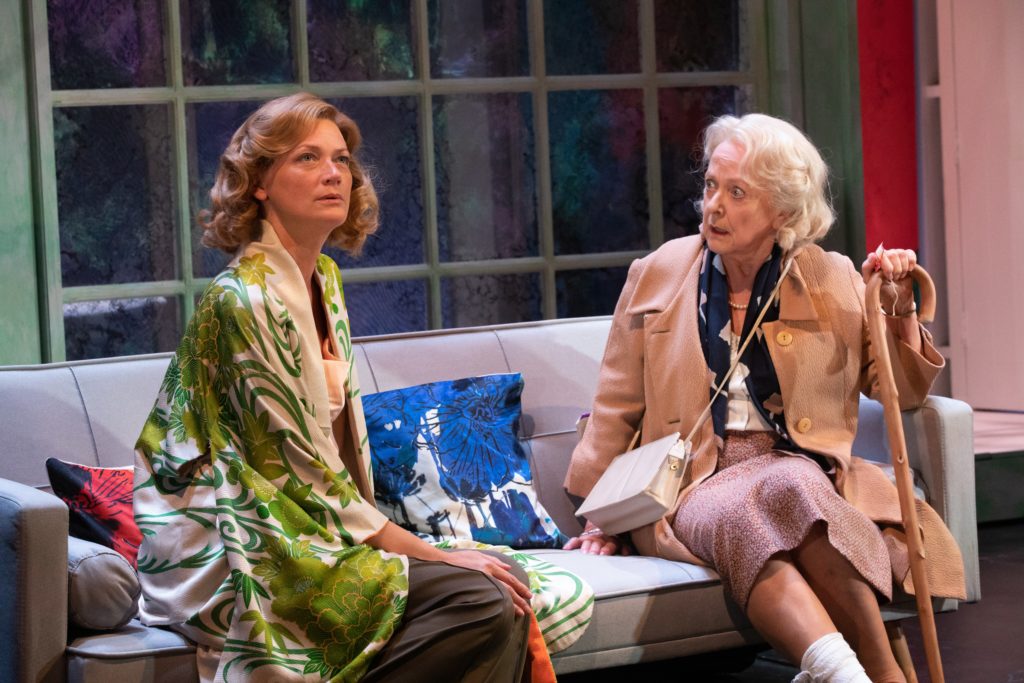
Have you and The Mirror Crack’d co-star Joe McFadden comparrd experiences working on Heartbeat?
“Joe was in the series after my era on Heartbeat, but we have that in common, which is really nice to be able to talk about. I was on the show for two years, quite a big chunk of time to do one job when you’re an actor. We’ve been catching up on our time in Heartbeat.”
How was lockdown for you?
“When we had our first lockdown, I was quite happy doing a lot of gardening for a while. But I think we all had thoughts of a reassessment of life and of what we were doing. I had time to ask myself, ‘Am I going to carry on with acting when this situation finishes’.
“As it turns out, I do want to carry on and I did miss it during lockdown, but it was really great to have that time to think about things. You’re on a wheel, which you get on and keep going round and round. It was good to think ‘I’m choosing to do this and not just carrying on’.”
Where does Marina Gregg fit into the kind of roles you play these days?
“I’ve had the opportunity to do lots of different parts. Marina is very much a movie star with all the charm and challenges that can bring. I’m thrilled to be playing her.”
What are the strengths of Rachel Wagstaff’s new adaptation of The Mirror Crack’d?
“This is one of Christie’s later books and things are changing in society and in St Mary Mead. Rachel’s version shows that they’re quite conscious of that in the village. The characters aren’t stock characters; they are all interesting, three-dimensional people and Rachel has managed to include all their stories.
“As an audience we need to care about them. You want to understand people and not just see another character murdered. Every character is valuable to the story.”
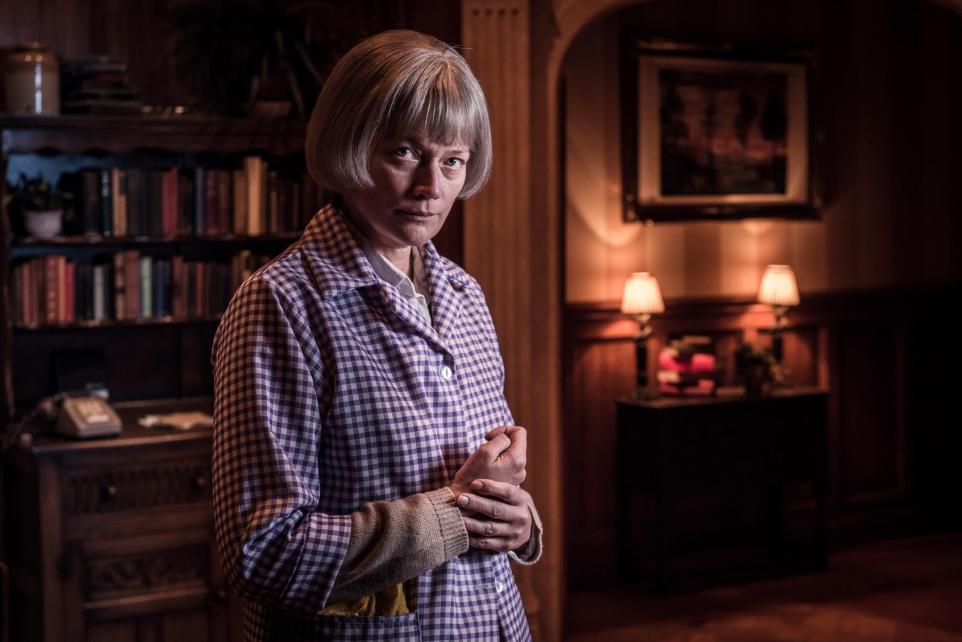
Have you returned to the book or film and TV versions?
“Obviously what we’re doing is our version. Rachel has done an amazing job so that’s what we work on and that’s where my imaginative world is: in Rachel’s world. But I’m really interested to see other versions and find out more about that world. Then you have to focus on Rachel’s version.”
You have written two novels, the first one, Love And Other Thought Experiments, being longlisted for the Booker Prize. Is a third book on the horizon?
“My second book [The Schoolhouse] came out in May and I’m hard at work on the third one. It takes me about five years to write a book.”
What prompted you to ‘go back to school’?
“First I did an undergraduate degree part time, then I did an MA, and I’ve just finished my doctorate at Goldsmiths. There’s a lot of waiting around in our job and I left school after my A-levels, didn’t go to university, just carried on working.
“I really wanted to go back to school. I knew my children would be coming up to that age soon and wanted to be able to talk with them about going to uni, what it meant and what it was. I studied, it took me about 15 years, and out of that came the idea for my first novel, which was a mixture of the things I’d been studying.”
You are an advocate for gay and lesbian rights…
“I try to be supportive and feel open about my life. I did write about equal marriage for the Guardian. I felt very strongly about it, about everyone being able to have that option to get married. I am involved to that extent but there are people whose whole careers are seriously applied to gaining our rights. I’m a very small part of that.
“There have been a lot of changes, changes in the law and people’s attitudes, which has been amazing to see and experience. But I never take it for granted because, as we see in other countries, either things don’t progress in the same way or they’re going backwards. You can’t be complacent.”
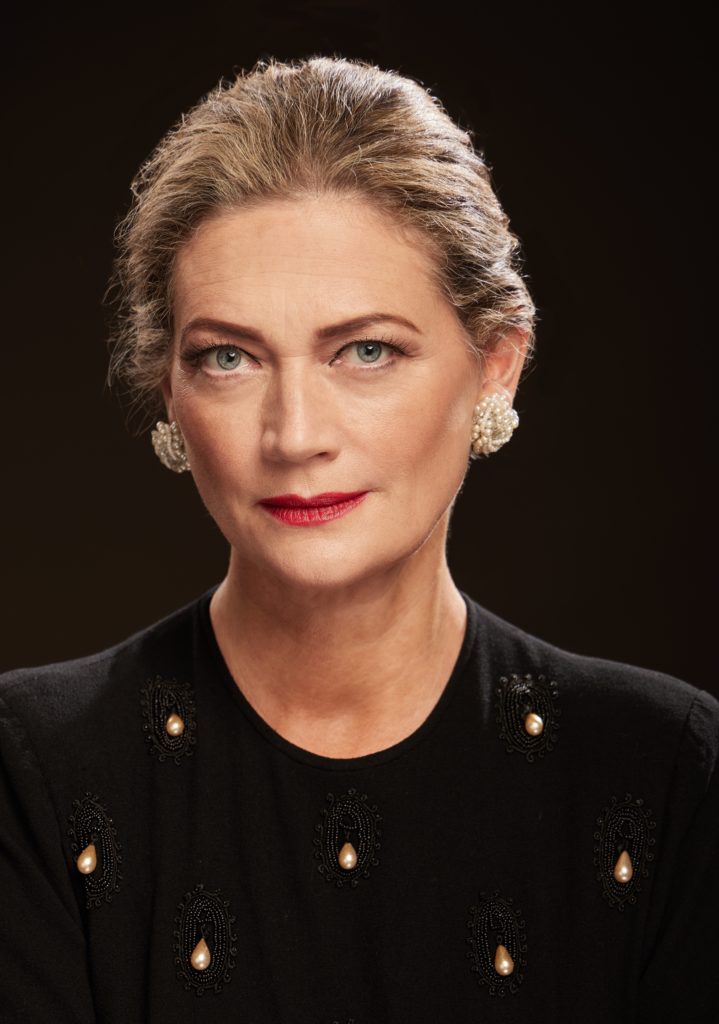
What’s coming next for you after The Mirror Crack’d tour?
“I have a research trip for my next book.”
Somewhere exotic?
“I can’t really say as I’m still developing the ideas and immersing myself in a new world. Let’s just say ‘travelling’!”
Sophie Ward fact file
Her first acting role was at the age of ten.
Now playing Rachel Johnson, opposite Kenneth Branagh’s Boris Johnson, in This Scepred Isle on Sky Atlantic/Now TV.
Appeared opposite Claire Foy and Paul Bettany in A Very British Scandal (BBC); starred in Troubled Blood (BBC/HBO), an adaptation of J.K. Rowling’s novel.
For the past four years, Sophie has hosted the European Diversity Awards and she works closely alongside Stonewall.
Original Theatre Company in Agatha Christie’s The Mirror Crack’d, York Theatre Royal, until Saturday, 7.30pm nightly; 2pm, Thursday; 2.30pm, Saturday. Box office: 01904 623568 or yorktheatreroyal.co.uk


